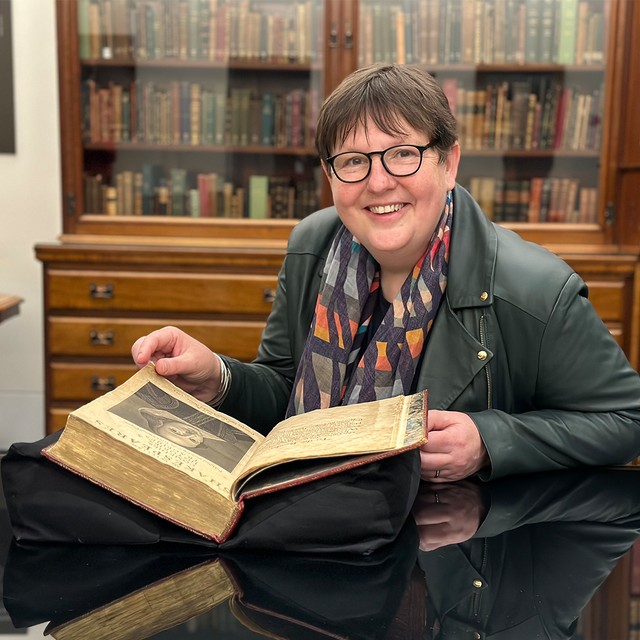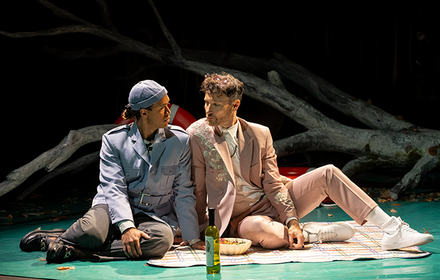Professor Emma Smith is one of the world’s leading authorities on William Shakespeare and his work. On a whistle-stop trip to Sydney, she dropped into Bell Shakespeare to talk Twelfth Night with writer Andy McLean.
Andy McLean: You’re editing Twelfth Night for the fourth series of Arden Shakespeare. While revisiting the play, what is catching your eye?
Emma Smith: Yes, I’m working on this play a lot at the moment and I find it fascinating in all kinds of ways: I enjoy its permissiveness. It’s not a completely straight romantic comedy; it’s always pushing against that model. And there are lots of ways it speaks to us right now. I’m really interested in what Viola’s pronouns would be in our time. Is this person’s name “Viola” (i.e. female birth name) or “Cesario” (the male name Viola chooses at the start of the play)?
That’s interesting because Bell Shakespeare’s 2023 production absolutely embraces the gender fluidity in Twelfth Night.
Yes, I’ve thought a lot about the end of the play when the twins Sebastian and Viola are reunited. Sebastian is the only person who knows Viola’s original name. I used to think that that’s the great message: that only the people who know us can secure us by calling us by name. But my students were saying, “You know, Sebastian is deadnaming his sibling”. Nobody else calls Cesario “Viola” in the rest of the play. So, I’m really interested in what we should call this character. We used to think of “Cesario” as a disguise and I’m not sure if that’s quite right now.
In this Bell Shakespeare production, Illyria exists out of time and place. It’s an ahistorical nowhere where people express gender and sexuality however they please. I think that’s in keeping with the play’s original subtitle, What You Will.
Certainly, early modern theatre allowed and celebrated things that were not seen as acceptable in everyday culture. And then consider Shakespeare’s sonnets, too. We don’t need to think of them as autobiographical to recognise that he was able to imagine deeply emotionally and physically fraught relationships between men and men. That’s evident in his sonnet writing and it isn’t evident in more or less anyone else’s sonnet writing of that period.
Sarah Blasko has composed the music for Bell Shakespeare’s new Twelfth Night, keeping alive the musicality that is inherent in this play. Why do you think Shakespeare made music such a central part of this play?
We know from modern-day movies how music sets the tone. And Twelfth Night begins with music [the opening line is: If music be the food of love, play on] and ends with bittersweet music [the play’s closing lines are delivered in Feste’s melancholy song]. [In Shakespeare’s day] Feste was played by Robert Armin – the same comic actor who played the Fool in King Lear – and this helped move the company away from slapstick comedy to a more modern kind of clowning. Twelfth Night is the last of Shakespeare’s comedies really, and it was written at almost exactly the same time as [the tragedy] Hamlet. It’s moving away from singing Hey nonny nonny to saying something much deeper and more existential.





